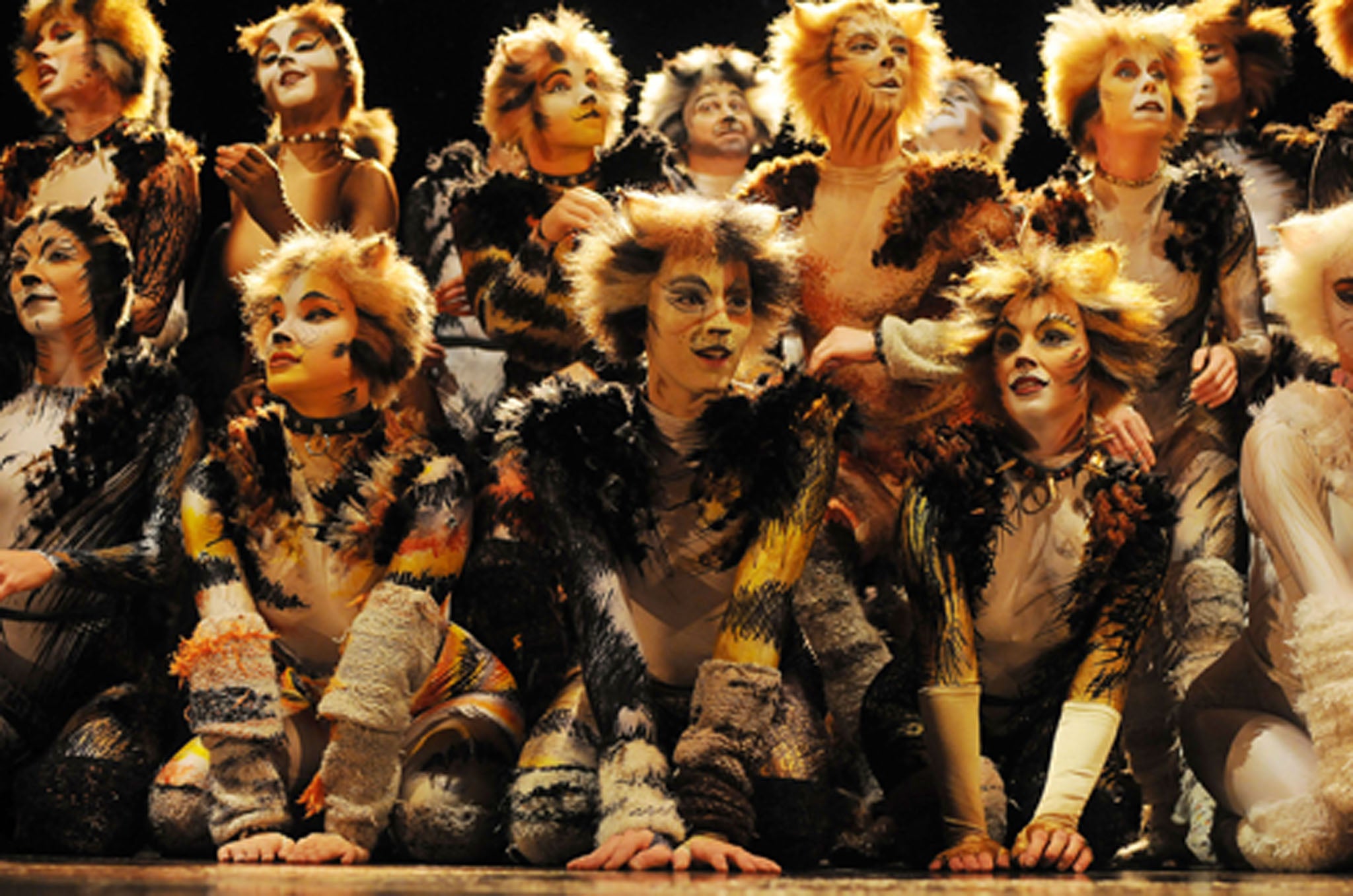Sir Cameron Mackintosh is wrong to say his musicals must never be changed
The great impresario should let his Cats run free


Sir Cameron Mackintosh has such boundless energy that it is hard to believe that the West End impresario is in his 70th year, and, indeed, talking about what will happen after his death. Add to the energy and brilliance a consistently astute judgement on matters of the musicals, and it is even stranger that his decisions on what will happen after his death are arguably ill-judged and wrong.
The producer of classic musicals such as Cats, Phantom of the Opera, Miss Saigon and Les Miserables says that he doesn’t want anyone tampering with his shows after his death. He has set up a foundation to take over the running of his theatre business and he has stipulated that his shows should not be updated or changed in any way.
“I’ve been successful beyond any of my dreams,” Sir Cameron said in an interview, “and I realise my foundation is going to be worth an absolute fortune. But it can’t create any new productions. I don’t want anyone getting their hands on it and using the money to make new versions of my shows.”
It’s an understandable sentiment. These shows are to some degree, quite a large degree, Sir Cameron’s children. He has nurtured them, kept his eye on them, made them behave when they looked like losing direction. In every case they were superlative productions, as their lengthy runs testify. Indeed, Les Miserables has just celebrated its 30th anniversary, attended by Sir Cameron and his nonagenarian mum. They are staples of British theatre, great entertainments and great international money-earners.
Why on earth would anyone want to meddle with them, Sir Cameron might (and clearly does) justifiably think. The answer is that this is exactly how theatre develops, exactly how musicals develop, how they surprise and enthral new generations. If every amazingly successful production were frozen in aspic, then theatre would be unable to fulfil one of its chief functions, namely to speak to audiences about issues of the day.
And yes that’s true of musicals too. In the early, hugely successful productions of South Pacific, the underlying racism in the show barely featured. In more recent productions it has been emphasised for a generation viewing those the attitudes of those wartime days with more critical, modern eyes.
Who knows what young directors in 20 or 50 years time might want to say about the revolutionaries manning the barricades in Les Miserables, or the Vietnam war in Miss Saigon. Let’s give them their chance to bring their own insights and vision. Surprise, reinvention and contemporary relevance make theatre the most inspiring of art forms.
There comes a time when everyone has to let their babies go. Sir Cameron should let his go too.
Alan Rickman was more stage than Snape
When Alan Rickman died, I was grateful for the words of his friend and colleague Sir Michael Gambon, who said: “He was a real man of the theatre and the stage, and that’s how I think of Alan.” I was grateful because it is now commonplace that when a great actor dies it seems always to be as a film star that they are remembered, and if they have been in Harry Potter then that inevitably dominates the headlines. I suspect that when Dame Maggie Smith passes away, the headlines will be full of Harry Potter and Downton Abbey. A stunning, decades-long stage career will take second place. But theatregoers remember these greats primarily for their long stage careers. And it is as for his great stage performances that I will remember Alan Rickman.
Revealed: the man who nearly spoiled George Osborne’s party
The Creative Industries Federation scored a coup in having the Chancellor, George Osborne, make a speech at its first anniversary party. Mr Osborne, knowing he had a receptive audience, after a favourable settlement for the arts in the last Autumn statement, spoke enthusiastically to the great and the good of the arts how the government remained determined to support British culture. And then, just when the love-in was going so swimmingly, someone yelled out, not once but twice, “What about the BBC!” This was an awkward interruption for Mr Osborne, as the party was being held at Television Centre and the BBC director-general was just a few feet away from him. Who could have spoilt the party with such a heckle? It was the redoubtable Sir Norman Rosenthal,the man behind the infamous Sensation exhibition, and still someone who knows how to make a stir.
d.lister@independent.co.uk. Twitter:davidlister1
Join our commenting forum
Join thought-provoking conversations, follow other Independent readers and see their replies
Comments
Bookmark popover
Removed from bookmarks